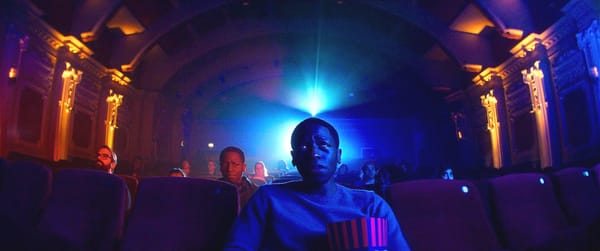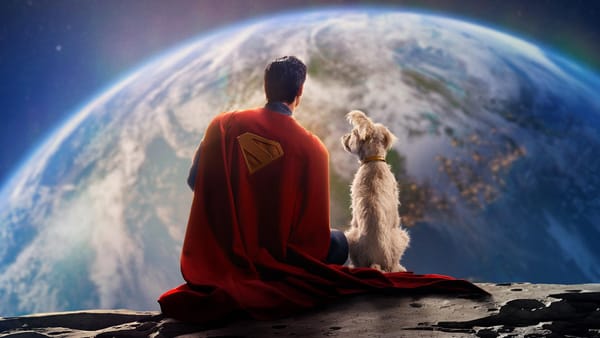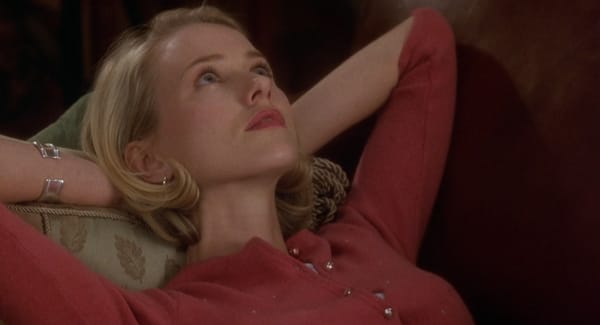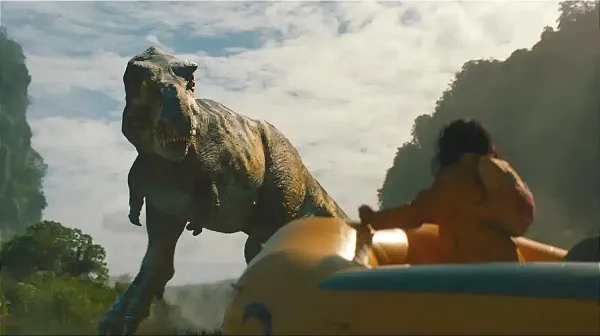The 20 Best Movies of 2022
(And where to find them.)
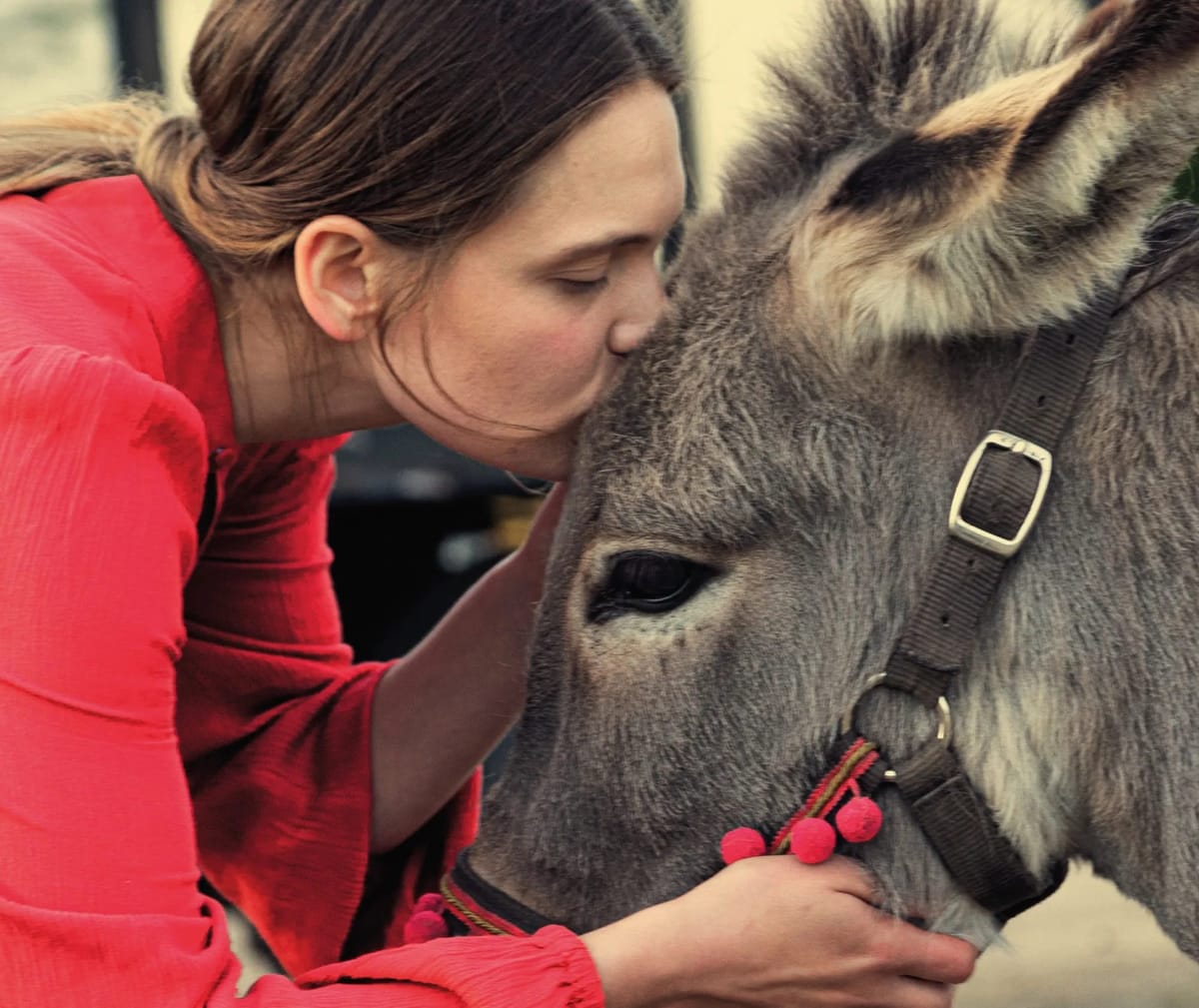
In the 30-plus Decembers that I’ve been making Top 10 lists for one publication or another, I’ve never encountered a movie year like 2022 – one so hesitant, off-kilter, and out of whack. It seemed like nothing of lasting value came out at all during the first six months – other than the one about the laundromat lady who can jump parallel universes – and the big summer blockbuster was a sequel to “Top Gun,” a 36-year-old hit starring the movies’ own Dorian Gray. Quality control returned, as it often does, with the fall festivals, but usually there are one or two movies around which critical consensus, audience favor, or both cohere: “Drive My Car” last year, “Nomadland” the year before, “Parasite” in 2019. In 2022, there are films that are admired, praised, even loved, but very few with the pop-culture mass momentum that distinguishes a landmark cinematic or social event.
Maybe it’s me. This was the first full year in which I reviewed movies and wrote about film not for an established media outlet but for my own publication, a project that freed me from the hamster wheel of a release calendar and the whims and deadlines of editors. Writing for an arts desk at a newspaper or magazine provides a structure to one’s workday, work week, work year, that in turn gives a spine and a narrative to the annual flow of media passing before a critic’s eyes. By contrast, most of the structure involved in Ty Burr’s Watch List — aside from hunting down movies I think you might want to see — consists of deciding when I’m going to eat lunch.
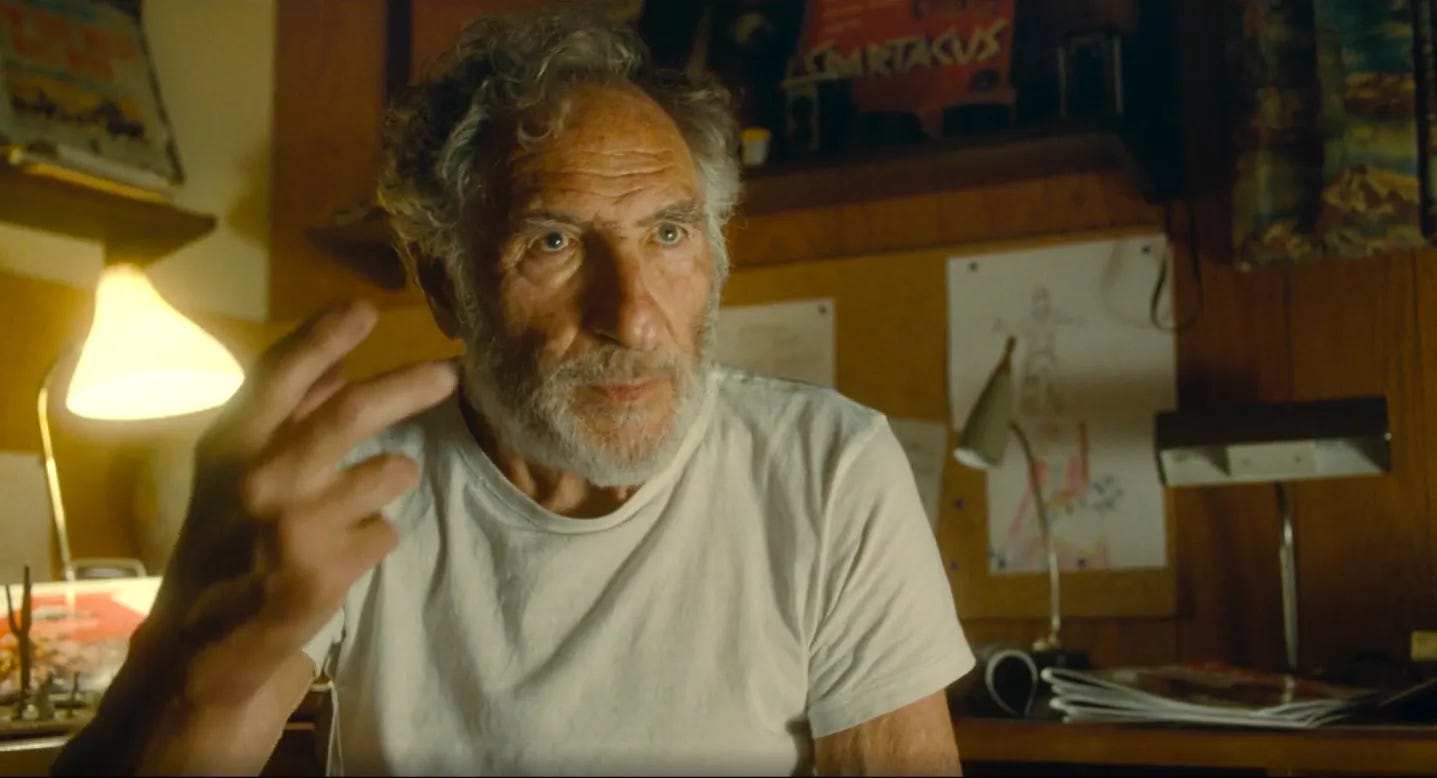
But maybe – and more likely – it’s about where we are as a culture, and about the movies’ place in that culture. The one-two punch of video on demand and COVID-19 continues to keep us indoors, at home, and away from the theater: While ticket sales bounced back further from the annus horribilis of 2020, total box office for the year is still only around 60 percent of 2019’s pre-pandemic $11.4 billion. More tellingly, over a tenth of this year’s $6.8 billion in ticket sales came from one movie: “Top Gun: Maverick.”
Audiences are staying home and watching TV, and laptops, and iPads, and cellphones. People are watching and talking about series: “The White Lotus,” “Yellowstone,” “House of the Dragon,” “Dahmer,” “The Bear.” And why not? All of the movies in the year’s box-office Top 10 are sequels, reboots, and IP extensions. (The top original films, “Elvis” and “Nope,” come in at #11 and #13 respectively.) On top of that, some of the year’s better films barely saw the light of a projector beam: “Glass Onion,” the sequel to “Knives Out,” was in theaters for seven days before Netflix yanked it to protect a Christmas week streaming debut. “Confess, Fletch” was released with zero marketing in theaters at the same time it went to VOD, where most people stumbled across it with surprise and delight. Three of the movies on my Top 20 list were Netflix premieres; almost all of the others can readily be found on one digital platform or another. With a handful of exceptions, a film’s theatrical release now serves as a loss-leader for its eventual surfacing on demand.
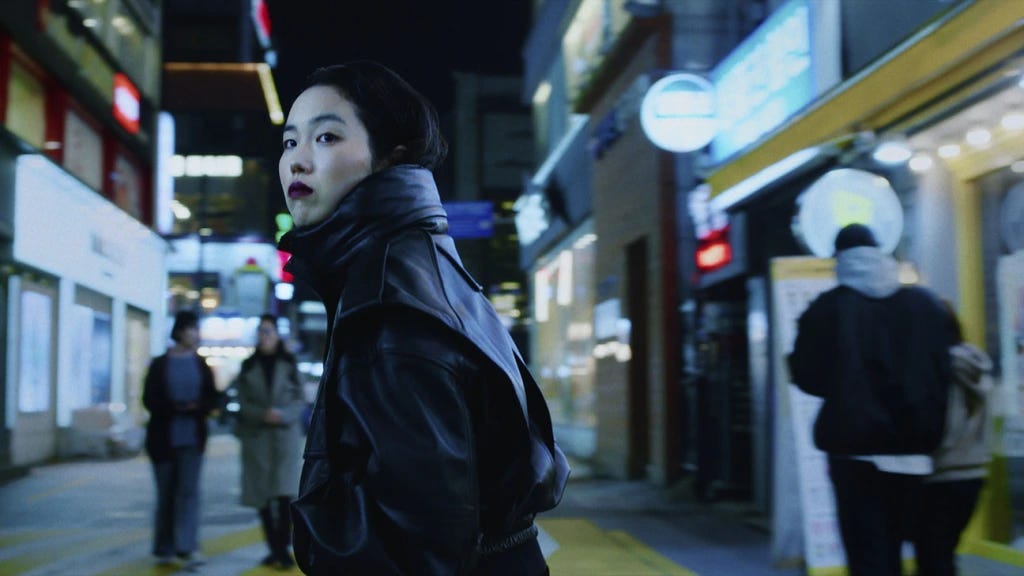
Yes, I have a Top 20 list this year – I did last year, too – along with a laundry list of runners-up. While 2022 didn’t offer much in the way of cohesion, it still had plenty of good movies, wherever you happened to find them. My aim with the Watch List is to point you to them and not just to the ten that make the traditional cut. Anyway, tradition is passé at the moment, and the movies as we have long known them – two hours long, bigger than life, consumed as part of a crowd and with popcorn – continue to mutate on their way to something different. What will that something look like? Quite possibly like the blockbuster event just now landing in theaters: “Avatar: The Way of Water.” It’s a sequel, to be sure, but also a herculean technological upping of the ante in terms of what this thing we call film can show us and, indeed, what we want it to show us. (I guess this is my review; if so, ⭐ ⭐ ⭐ 1/2.)
I discuss it further below – yep, it’s on the list – but let me note that James Cameron’s gamble has paid off not just with a richer emotional storyline and (slightly) more complex characters but with a vast and remarkable immersive there-ness, in part because “Avatar: The Way of Water” is the first digital high-frame-rate movie that doesn’t seem like a joke. HFR turns the visual chiaroscuros of film into the hot “live” look of TV news, sports, and soap operas, and it’s been the kiss of death in movies like Peter Jackson’s “Hobbit” trilogy or Ang Lee’s “Billy Lynn’s Long Halftime Walk.” Cameron has found a way to use the pointillistic hyperrealism of 3D HFR in a way that doesn’t distract but instead augments the dramatic experience, and the results feel like we’re one step away from the holo-suits that will turn us all into those atrophied blobs from “Wall-E.”

You may sense some ambivalence here. Did I enjoy the movie? You bet. Did it make me feel unsettled about where we’re heading? Ditto. “Avatar: The Way of Water” is going to be a massive hit, and therein lies my unease. Seeing it at the end of a long and uncertain year in film, I felt like I was watching two things unfold simultaneously: the future of cinema and the death of movies. Watch this space.
Ty Burr’s Top 20 Films of 2022, in alphabetical order
“After Yang” – The first great film I saw in 2022—at the second virtual Sundance Film Festival – hovered in the background of the rest of the year like the lingering smell of incense in a temple. Set a decade or three into the future, the second feature by the Korean-American writer-director Kogonada (“Columbus”) examines the emotional fallout in a family that has lost their beloved humanoid robot Yang (Justin H. Min), an older “brother” to his adopted little sister (Malea Emma Tjandrawidjaja). The drama plays out through the eyes of the father (Colin Farrell in one of two richly moving 2022 performances) as he uncovers Yang’s secret past and plumbs the nature of memory, belonging, and the wiring – electronic and otherwise – that binds us to each other. A quiet movie, imaginatively conceived and brought to the screen, and bottomless in its affection for the mysteries of being human – whatever that means. (Streaming on Showtime; for rent on Amazon, Apple TV, Google Play, YouTube, and elsewhere.)
“Aftersun” – A Scottish man and his young daughter, separated by divorce, take a vacation on the coast of Turkey and try to get to know each other before it’s too late – before she vanishes into adolescence and before he gives himself up to a darkness we sense lying just out of frame. A heartbreaking and nearly perfect “emotional autobiography” from first-time writer-director Charlotte Wells, it seeks to comprehend the enigma of a father from the vantage points of both an 11-year-old girl and the thirty-something woman she’ll become, with a vintage 1980s video camera the medium of transference between them. It features a restless, bruised performance by Paul Mescal as the father, a gracefully naturalistic find in Frankie Corio as the daughter, and a soundtrack of period pop madeleines that crests with Queen and David Bowie’s “Under Pressure,” a song that I’ll probably never listen to again without busting into tears. (In theaters now.)
“All That Breathes” – Loyal readers know that the Watch List occasionally veers off into all things bird- and birding-related, so it’s not surprising that I fell hard for Shaunak Sen’s documentary about two brothers, Mohammad Saud and Nadeem Shehzad, who’ve devoted their lives to rescuing the magnificent raptors known as black kites as they fall from the pollution-choked skies of Delhi. Gratifyingly, the rest of the world seems to agree: The film has won documentary awards at Sundance, Cannes, and elsewhere, and an Oscar nomination looks almost certain. The director’s masterstroke is to show us an apocalyptic landscape through the vantage point of all the creatures living in it: birds, boars, rats, insects, frogs, owlets, and – most heedless, helpful, hopeless, and hopeful of all – us. (In theaters now; on HBO in 2023.)
“Athena” – A jagged, grab-you-by-your-throat war movie, but the war is between the desperate young Arab immigrants of a French high-rise slum – an army of the dispossessed – and the soldiers and policemen of the State. Director Romain Gavras (son of Costa-Gavras of “Z” fame) tosses us right into the middle of the battle zone as it explodes in an astonishing 11-minute opening shot that introduces us to all the key players, including three brothers who are mourning a fourth murdered by the cops and who stake out the film’s moral terrain: The Iraq War hero (Dali Benssaleh), the soulless drug dealer (Ouassini Embarek), and the teenage street fighter with the quick mind and cold fury of a general (Sami Slimane). The film offers no solutions – indeed, says it’s too late for solutions – but paints a brilliant, scarifying picture of the problem. (Streaming on Netflix.)
“Avatar: The Way of Water” – An end-of-the-year slam-dunk from self-anointed world’s greatest digital showman James Cameron, who delivers on decades of hype – or did it just seem like decades? – with a surprisingly soulful new machine of equal parts technology and wonder. Here’s where I confess that the first “Avatar” left me cold in 2009, dazzling me with its lush 3D world-building but boring me with a simple-minded script and rehashed white-savior bushwah. (I liked the movie better when it was called “Dances With Wolves”). The long-awaited (and, yes, overlong) sequel goes in the other direction with at least one too many plot strands, but the central drama – of a man trying to save and contain his growing family – feels fresh and deeply felt. Better yet, the incredibly detailed visualization of Pandora’s reef-dwelling island culture renews a viewer’s thirst for sheer spectacle that has been parched by years of cookie-cutter studio blockbusters. An actual marvel and, for better and for worse, the wave of the future. (In theaters now.)
“The Banshees of Inisherin” – It has any number of laugh-out-loud moments, but I keep coming back to the twin tragedies embedded in writer-director Martin McDonagh’s latest and finest film (and, not coincidentally, the one most like his theater work): A man – Brendan Gleeson’s Colm – whose depressive despair turns him toward the beauties of music but away from his fellow man, and another man – Colin Farrell’s Pádraic – whose dim and gentle soul is slowly crushed and made cruel by his friend’s abandonment. There’s metaphor to be had in the Irish Civil War erupting over the water on the mainland, but you’re just as free to concentrate on the existential stalemate at hand, one worthy of McDonagh’s great countryman, Samuel Beckett. With invaluable support from Kerry Condon and Barry Keoghan, and the year’s second-best performance by a donkey (see below). (In theaters and streaming on HBO Max; for digital purchase elsewhere.)
“Descendant” – The last ship to bring African slaves to America came illegally in 1860: The Clotilda brought 110 men and women stolen from the Kingdom of Dahomey to Alabama and up the Mobile River, where plantation owner Timothy Meaher had it burned and sunk. A century and a half later, the remains of the Clotilda were found, but who owns them, and who owns its story? The historians and divers gathered around the wreck or the citizens of Africatown, whose ancestors were brought here by force and lived well into the 20th century (when they were documented and commemorated in Zora Neale Hurston’s “Barracoon”)? Margaret Brown’s documentary is a moving portrayal of a community hard up against it – the town is surrounded on all sides by heavy industry on land still owned by the Meaher family – but proudly and insistently reclaiming a narrative they see as belonging to them and nobody else. (Streaming on Netflix.)
“EO” – Here’s the best performance by a donkey in a 2022 movie, but to be fair, he’s the star of this one (or, rather, the six donkeys cast to play the title animal are the stars). Director Jerzy Skolimowski (“Moonlighting,” “The Shout”) has been a cinematic troublemaker for seven decades now – my introduction to him was a college screening of his 1970 knockout “Deep End” – but he’s an animal lover and rights advocate, too, and at 84 he’s made his most tender movie to date, and possibly his saddest. The latest in a mini-genre of animal-eye’s-views that includes “Gunda” and “Cow,” “EO” is a pilgrim’s progress of a simple beast of burden from his home in a circus across a Europe of cruelty and humanity – a world where he is cherished, ignored, and mostly just used. Skolimowski’s acknowledged inspiration is Robert Bresson’s 1966 masterpiece “Au Hasard, Balthazar,” but as he’s Polish and perhaps less interested in Christian allegory than in the colossal inequities of the here and now, EO remains a donkey – nothing more and exquisitely nothing less. (In theaters now.)
“The Eternal Daughter” – The British filmmaker Joanna Hogg has progressed from tricky, prickly dramas of family power dynamics to probing her own biography and inner life: “The Souvenir” (2019) and “The Souvenir Part II” (2021) fictionalized a tempestuous university romance and the maturing that came in its aftermath, and “The Eternal Daughter” is an eerie and, in its final scenes, powerfully wrenching two-hander about a middle-aged daughter and her aging mother visiting a rural hotel where the mother was billeted during World War II. Tilda Swinton, who played the heroine’s mother in the “Souvenir” movies, plays both mother and daughter here, a risk that quickly rises above hair-and-makeup gimmickry into a remarkable double wire-walk. “The Eternal Daughter” plays with the cliches of Gothic fiction – windswept fields and bumps in the night – and it is a ghost story, but one that unravels its revelations from the heart with inconsolable love and sorrow. (In theaters now; for digital purchase on Amazon, Apple TV, Google Play, YouTube, and elsewhere.)
“Everything Everywhere All At Once” – Hands down the most high-concept, action-packed, multi-universal, bagel-obsessed film of the year, and one that looks to have re-sparked a love of movies – movies! seen in a theater! as part of a crowd! – in a generation that takes its cues from TikTok and social media memes. Which is to say that Daniels (i.e., co-directors Daniel Scheinert and Daniel Kwan) have made a cult film as manic as “Buckaroo Banzai” or “Brazil” (look ’em up, kids) that still manages to take the pulse of modern disconnect in ways that prompt emotional healing while making you want to call your mom. A film that demands you put down your phone and pay attention, it allowed Michelle Yeoh to play an actual woman (an ass-kicking actual woman, but still), raised Ke Huy Quan from the career dead of former child actors, and gave Jamie Lee Curtis hot dogs for fingers. Also: talking rocks. A must-revisit joy that’ll keep us sustained for winters to come. (Streaming on Showtime; for digital purchase on Amazon, Apple TV, Google Play, YouTube, and elsewhere.)
“The Fabelmans” – Remember when Steven Spielberg was a grinning, preternaturally talented Movie Brat, shaking up audiences and the movie industry with “Jaws,” “Close Encounters,” and “E.T.”? “The Fabelmans” is the story of how he got that way and of the family discord that formed him into our pop culture’s most gifted fantasist. There’s a classic American narrative there, of how we transform personal hurt into mass entertainment, private failure into public success, and Spielberg is nothing if not our premiere movie classicist. So when you sit down to watch his most autobiographical film to date, you can be forgiven if the masterful ease of his storytelling – his nose for the tale we want to hear – occasionally soothes away the pain. I still wonder if Michelle Williams’ Mitzi Fabelman is kinder to the late Leah Spielberg than Leah might have been to her family. Perhaps not, and perhaps it doesn’t matter. With a terrifically spry Tony Kushner script and a groaning board of great supporting performances (Judd Hirsch, ladies and gentlemen! David Lynch!), this is a portrait of the artist as a young mensch. (In theaters now; for rent on Amazon, Apple TV, and elsewhere.)
“Men” – A dreamlike nightmare of female paranoia, written and directed by a man – the scarily gifted Alex Garland (his third after “Ex Machina” and “Annihilation”) – but starring one of the most reliably protean actresses currently working. Jessie Buckley plays a woman fleeing from the trauma of her fiancé’s suicide to an Airbnb in a rural English village, where the male population runs the gamut from vaguely unsettling to openly hostile and from a gaslighting parson to a creepy preadolescent boy to a forest tramp who may be the Green Man of pagan legend. That all of them are played by the same actor – Rory Kinnear, given various makeovers, digital and otherwise – adds to the air of surreal menace. “Men” flirts with traditional horror-movie imagery but Garland is tapping a deeper and more disquieting well of unease that feels as ancient as human sacrifice and as modern as an online death threat from a man you’ve never met. (For rent on Amazon, Apple TV, Google Play, YouTube, and elsewhere.)
“No Bears” – Some people just have to make movies, as a need, as art, as protest. Few have paid a price as high as Iran’s Jafar Panahi, who once responded to a 20-year ban on making new movies by directing one called “This is Not a Film” (2011) and smuggling it into Cannes on a flash drive hidden in a cake. He has since made three other movies in defiance of his country’s Ministry of Culture and Islamic Guidance, the latest of which is this heartsore multi-leveled narrative about a filmmaker named Jafar Panahi living in an Iranian border village while Zoom-directing a movie in a nearby Turkish town and becoming involved in a local scandal. In Panahi-land, love and humanity are forever thwarted by repressive rules and the fear they engender; “No Bears” dramatizes this with wit, moral clarity, and a terrible sadness. And prescience: In July of this year, Panahi was arrested and ordered to serve six years in prison. (In theaters Dec. 23.)
“Nope” — “Get Out” may still be Jordan Peele’s best and most cohesive movie, but his third outing as writer-director is by far his most relaxed: A sci-fi horror western that shows an ambitious filmmaker at play in the fields of John Ford, Steven Spielberg, and M. Night Shyamalan. Everything in this genre mashup is viewed through the lens of the Black American experience: If Richard Dreyfus in “Close Encounters” wants to meet the aliens, Daniel Kaluuya’s response is … well, check the title. Kaluuya is in fine form as the strong, silent hero, but Keke Palmer pockets the movie as the hero’s sister, who looks at a possibly carnivorous UFO careening out of the desert sky and sees dollar signs and an appearance on Oprah. From camerawork to editing to Michael Abel’s brilliant score, you can feel Peele’s joy at getting behind the controls of these storied movie conventions and telling his own version of the tale. (Streaming on Peacock; for rent on Amazon, Apple TV, Google Play, YouTube, and elsewhere.)
“The Northman” – Maybe the closest we’ll ever get to a movie made by actual ninth-century Viking warrior. The third feature from Robert Eggars (“The Witch,” “The Lighthouse”) – it was a very good year for third features – is a muscular, meticulously researched reverse-engineering of Shakespeare’s “Hamlet” to its medieval sources, with Alexander Skarsgard as a Viking prince who turns berserker avenger when his uncle (Claes Bang, that no-goodnik from “Bad Sisters”) kills the king (Ethan Hawke) and marries the queen (Nicole Kidman). Anya Taylor-Joy, Eggars’ discovery from “The Witch,” plays the flaxen-haired “Olga of the Birch Forest,” one of the few unintentional giggles in a film that’s far more idiosyncratic and assured than the “Conan” knockoff its trailer makes it look like. This director has a genuinely great movie in him, and he’s getting closer with each try. (Streaming on Amazon Prime; for rent on Amazon, Apple TV, Google Play, YouTube, and elsewhere.)
“Return to Seoul” – It dropped too late in the year for many US critics and won’t be seen by general audiences until early 2023, but Cambodian-French writer-director Davy Chou’s second film upended a lot of best-of lists with its ferocious lead performance by Park Ji-Min as a footloose young woman, born in South Korea, adopted by French parents, and now back in her home capital, where she defiantly pushes back against propriety and Korean social norms with self-destructive recklessness. The movie turns the trick of keeping us on the side of an unlikeable heroine by letting us glimpse the need she’s buried far under her uncaring exterior; by letting her discover it for herself over the course of several years – Chou leaps time-periods with easy abandon – “Seoul” builds to a devastating emotional pitch, followed by something that looks like peace. A stunner. (Opens in NY/LA February 17, 2023.)
“RRR” – The letters stand for “Rise, Roar, Revolt,” and the first two are what you may feel like doing after watching this insanely over-the-top Tollywood blockbuster on Netflix. (“Revolt” is what you may feel like doing when you realize you can’t see it on the big screen where it belongs.) Set in 1920s India under the British Raj and based loosely on A) India’s twin epics, the Ramayana and the Mahabharata, and B) a pair of historical freedom fighters, “RRR” is a bromance, a musical, a preposterous action flick, and the sort of high-octane production that’s par for the course in Bollywood and its many regional filmmaking centers. Directed with delirious gusto (and a soupçon of nationalism) by S.S. Rajamouli, the movie makes even our most baroque Hollywood extravaganzas look like industrial documentaries. (Streaming on Netflix.)
“Tár” – I admired Todd Field’s drama of downfall and comeuppance more than I loved it – or at times even liked it – but one of the things I admired most was the film’s insistence that we lean in, pay attention, work a little (oh, the effrontery) to snap the puzzle pieces of Lydia Tár into place. It’s filmed with a cold, clinical austerity that you may come to realize is how the world looks from behind the eyes of the world-famous conductor herself, eyes that avoid the mirror of self-examination until events push their way through and reveal to Lydia (as they reveal to all) the extent of her monstrousness and fraud. Cate Blanchett is wickedly imperious in the lead – deep down, the actress is having a great deal of fun here – and I think she knows, as Todd Field knows, that a story about a male conductor who abuses underlings, sexually and otherwise, would be another story about a man, whereas this one is a story about power and its corruptions. (For premium digital rental or purchase on Amazon, Apple TV, Google Play, YouTube, and elsewhere.)
“The Woman King” – Here’s a fact: Gina Prince-Bythewood is one of the best mainstream directors in Hollywood. I say that on the strength of her debut, “Love and Basketball” (2000), her swooning music-industry romance “Beyond the Lights” (2014), and definitely her updating of the hardy swords-and-sandals genre to one of the most passionate action movies of 2022. The movie’s not just a field day for Viola Davis as a fire-breathing, battle-scarred warrior queen of 19th-century Dahomey but for the wide range of actors who support her, including the troika of Thuso Mdebe, Lashana Lynch, and Sheila Atim as Davis’s cohorts in the female soldier regiment known as the Agojie. Verily, this is a “Gladiator” for a new generation, with added anguish and urgency, and if Russell Crowe could bag an Oscar for that film, then Davis deserves one for this. (For rent on Amazon, Apple TV, Google Play, YouTube, and elsewhere.)
“Women Talking” – It sounds deadly earnest and maybe just deadly: a dozen or so Mennonite wives and daughters sitting in a barn and hashing out what they’re going to do about the epidemic of rape they’ve been subjected to by their men. (Miriam Toews’ source novel was based on a real incident in a South American religious community.) Instead, it’s electrifying, thanks to the skilled invisible hands of director Sarah Polley and the efforts of a magnificent cast that brings fury and cauterized wit to the debate. Rooney Mara, Claire Foy, and Jessie Buckley are three of the wives and mothers angrily arguing whether to leave or stay, while the actresses playing their elders include Judith Ivey, Sheila McCarthy, and a bitter, briefly seen Frances McDormand. (In limited release Dec. 23, wide release Jan. 6, 2023.)
Runners-up (meaning they’re really good and you should see them too.): “All the Beauty and the Bloodshed,” “Barbarian,” “Crimes of the Future,” “Decision to Leave,” “Dos Estaciones,” “Fire of Love,” “Glass Onion: A Knives Out Sequel,” “Good Luck to You, Leo Grande,” “Happening,” “Hold Me Tight,” “Holy Spider,” “The Janes,” “Kimi,” “Louis Armstrong’s Black and Blues,” “A Love Song,” “Marcel the Shell with Shoes On,” “SR.,” “Till,” “We’re All Going to the World’s Fair,” “The Wonder.”
Thoughts? Don’t hesitate to share — comments are open to all today.
If you enjoyed this edition of Ty Burr’s Watch List, please feel free to pass it along to friends.
If you’re not a paying subscriber and would like to sign up for additional postings and to join the discussions, here’s how:
One more thing: The holidays are coming, and what better gift for the movie-besotted loved one on your list than a year’s subscription to Ty Burr’s Watch List?


